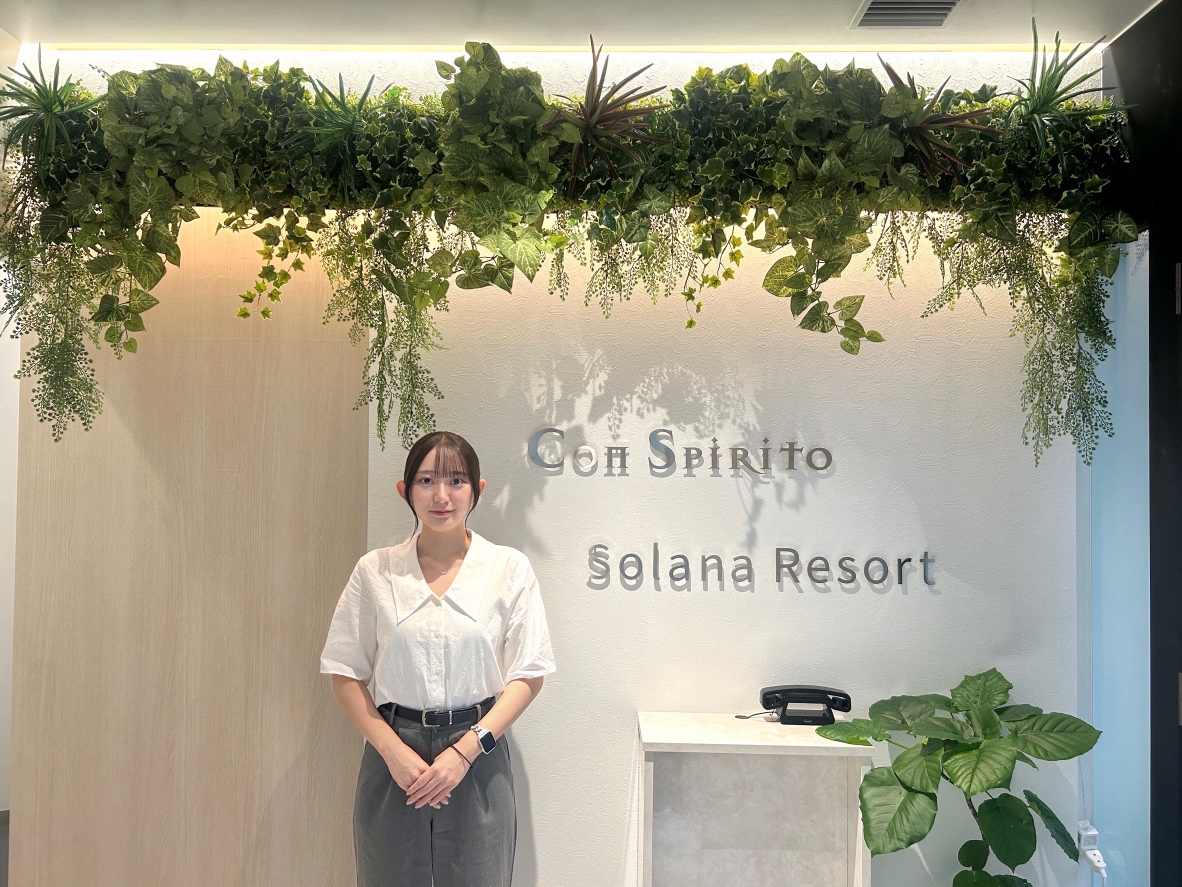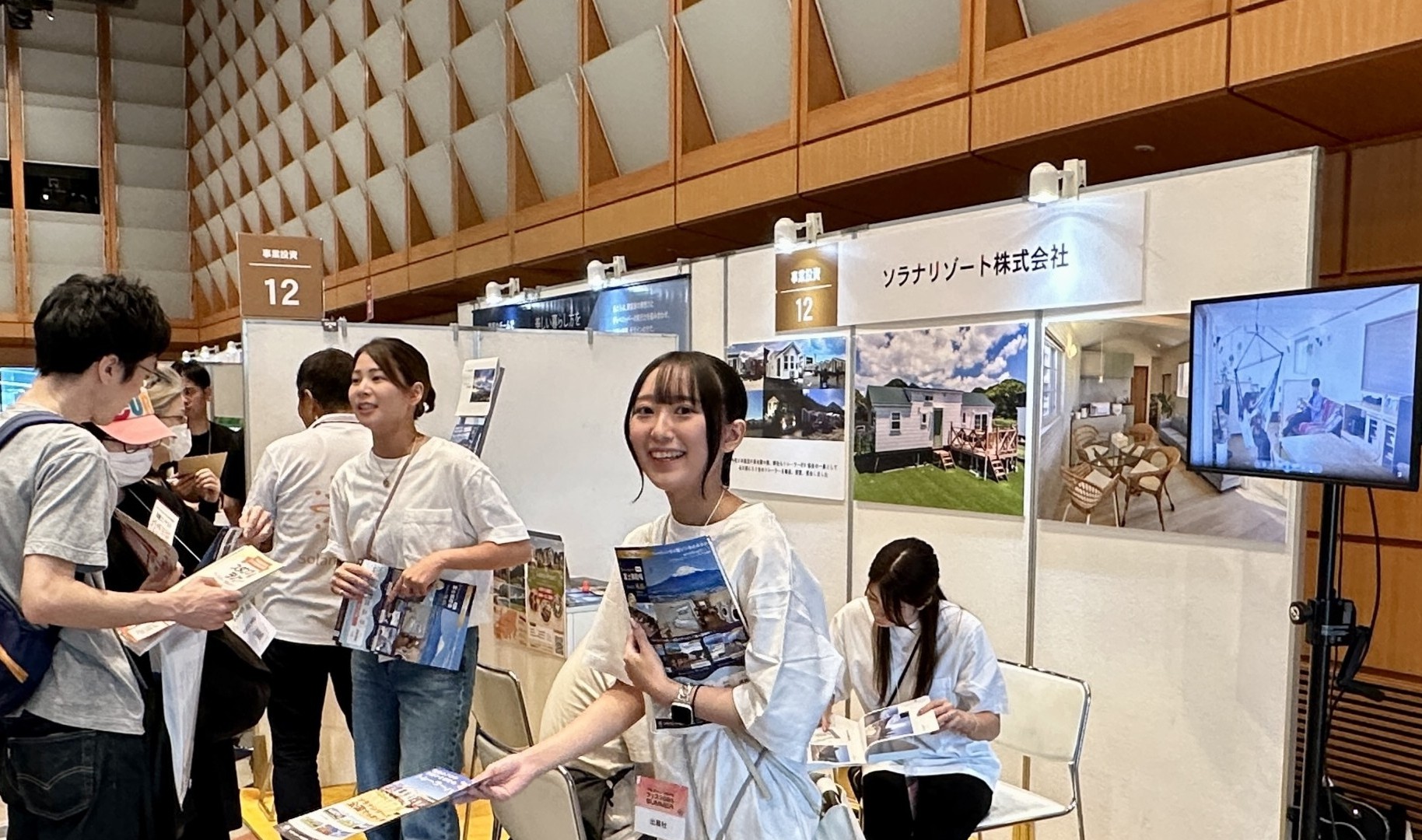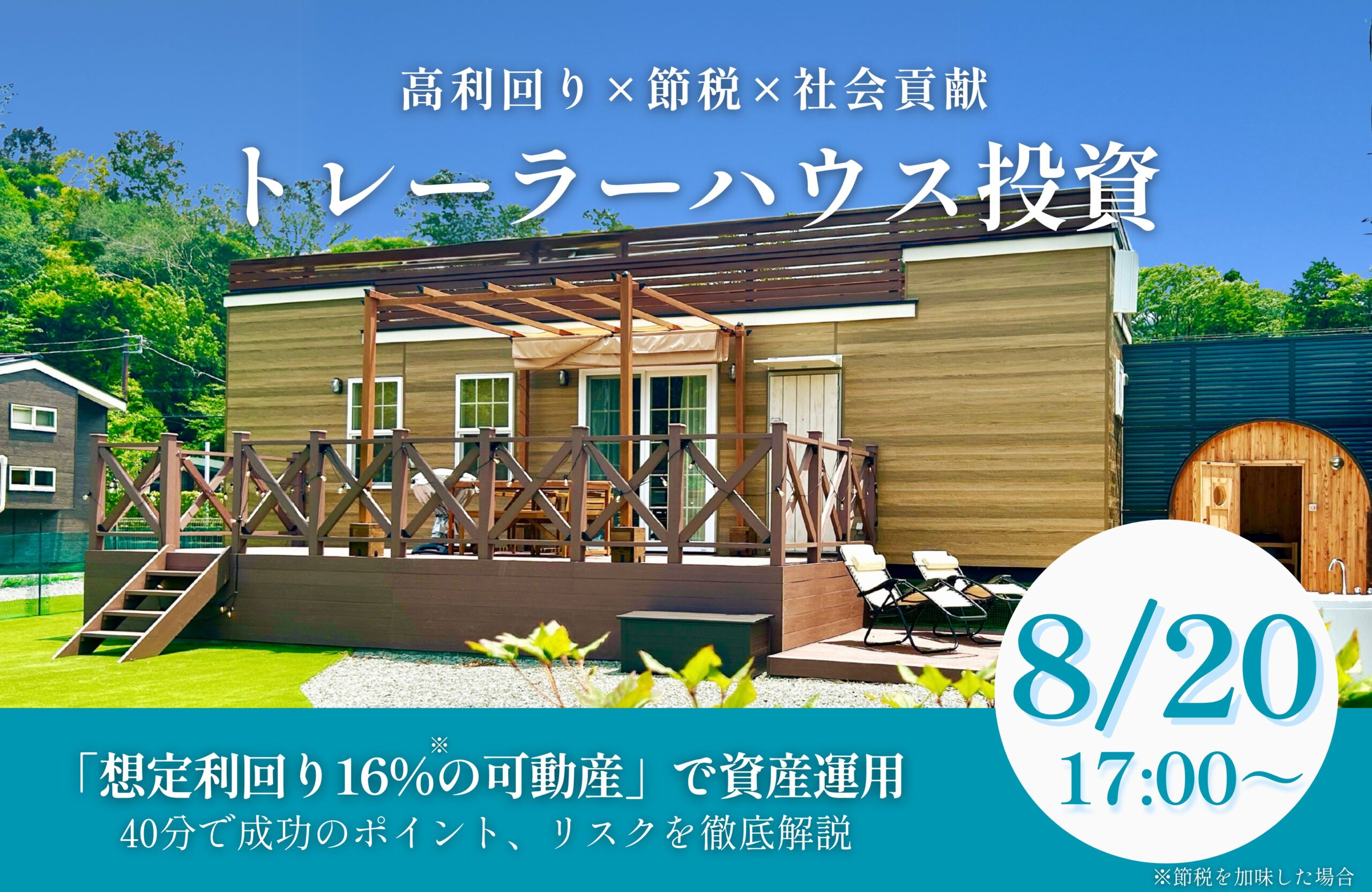

About UsAbout Us
Real estate management is
What the customer envisions
It is a means to achieve a goal
We believe that...
We put our customers' lives first,
We will propose the best plan and property for you.






Real estate management is
What the customer envisions
It is a means to achieve a goal
We believe that...
We put our customers' lives first,
We will propose the best plan and property for you.


We can provide comprehensive support, from real estate asset formation to management support.
Our knowledgeable staff will make suggestions tailored to each individual customer.
Those who are just starting to invest

People who own property

Those who want to take measures for inheritance and organize assets

Notice of opening of Ebisu branch

We exhibited at THE GOLD ONLINE FESTIVAL 2025 SUMMER

The industry is currently in the spotlight. Asset management with "mobile property with an expected yield of 16%" A seminar will be held to explain trailer house investment that will achieve high yields, tax savings, and social contribution.
Location: Zoom
Date and time: 2025-08-2017:00-18:00

Summer vacation notice
We are currently delivering useful information on real estate management!

Don't fail in real estate management! [Beginner]
2020/10/01

Loan Basics: Repayment Ratio! [Beginner] A
2020/10/02

Tax on real estate capital gains [Intermediate]
2021/06/17

Various costs involved in buying and selling real estate [Beginner]
2021/06/13

Let's take a look at Village House [Beginner]
2021/03/04

[Taiwan branch establishment commemoration!] We asked the people on the ground about the Japanese real estate market from Taiwan's perspective!
2020/10/01